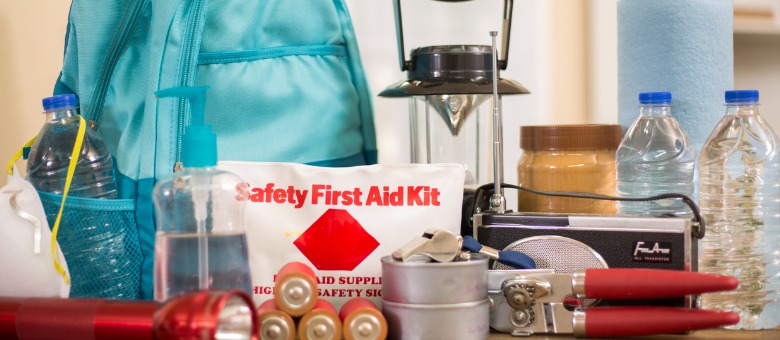
Emergency Kit Essentials
No one wants to think they’ll be in an emergency. However, preparing yourself for an emergency is important, even if you don’t think it’ll happen.
One of the essential steps in preparing for an emergency is putting together an emergency kit. An emergency kit is a collection of essential items for an emergency, like a natural disaster. It’s a pack of essentials you can survive on if something happens and may even save your life.
Do I Need An Emergency Kit?
Everyone should have an emergency kit, especially if you live somewhere prone to natural disasters like Mobile, Alabama. Since Mobile is near the Gulf, there is a high natural disaster risk for hurricane-related incidents and wildfires because of the high temperatures.
Even if a natural disaster doesn’t directly hit your home, you could experience related effects, such as power outages, flooding, or decreased air quality. All of these may impact your safety and require an emergency kit.
Emergency kits are not just for natural disasters. They are also useful in other emergencies, such as a house fire. Having a kit packed and ready to go makes it easier for you to grab essentials in case you need to quickly leave your home.
What Goes In My Emergency Kit?
Everyone’s emergency kit will vary, but it should include any daily necessities plus anything you can benefit from in an emergency. The National Institute on Aging recommends packing these essentials in your emergency kit:
- Food and water: You’ll want fresh, bottled water and nonperishable items you can enjoy without much preparation, such as crackers, canned tuna, and dried fruit.
- Flashlight: In case of a power outage, you’ll want a few large flashlights and batteries to help you see.
- First aid kit: You should have a basic first-aid kit with bandages, antibiotic ointment, cloth tape, and dressing. You can find pre-made first-aid kits at any local convenience or drug store.
- Sanitation supplies: Your sanitation supplies should include things to clean an area, like disinfectant wipes and hygiene products, like a travel toothbrush and toothpaste.
- Sleeping bag and blankets: Sleeping bags and extra blankets are helpful if you get displaced from your home and need something to keep you warm while sleeping.
- Communication devices: Cell phones may not be reliable in a natural disaster. Secondary communication devices, like walkie-talkies and CB radios, can help you communicate with authorities during a natural disaster.
- Clothes and shoes: Consider packing a few days worth of extra clothing and a pair of shoes.
- Eyeglasses and hearing aids: Pack an extra pair of eyeglasses or contacts if you have them. You’ll also want an extra hearing set and batteries.
- Medications: Make sure you keep your prescription medications close to your emergency kit to be easily accessible in an emergency. You can also pack nonprescription medications, like pain relievers.
- Health information and copies of important documents: Keep copies of any important documents in your emergency kit if something happens to the originals.
Assembling An Emergency Kit With Visiting Angels
Visiting Angels wants nothing more than to ensure their clients' safety, including helping them prepare an emergency kit. Our caregivers are happy to help you make a list of essentials, provide transportation to pick up necessities from a nearby store, and assemble your kit for emergencies.
Outside of helping you prepare for an emergency, our caregivers also provide nonmedical services to keep you living safely at home. Caregiving duties include medication reminders, mobility assistance, meal preparation, and light housekeeping. We also offer specialized services like dementia care and assistance in returning home after a hospital stay.
Our Mobile office works with local clients throughout the surrounding communities. Contact our office to learn more about our at-home caregiving services.
